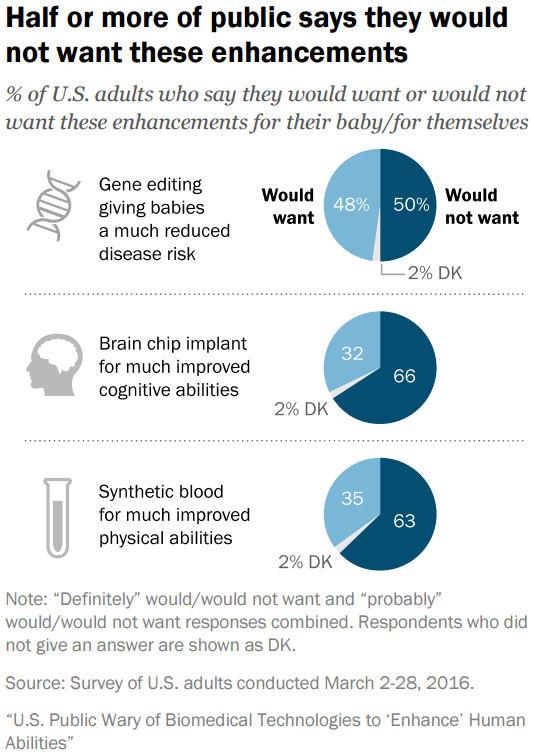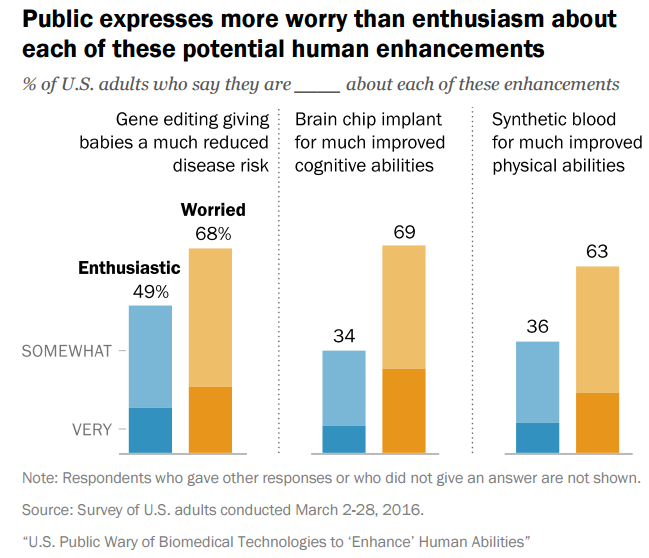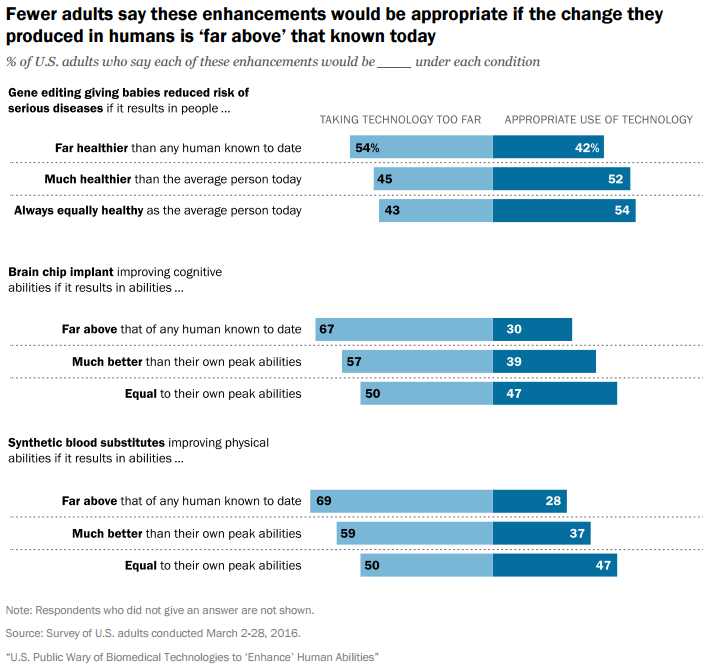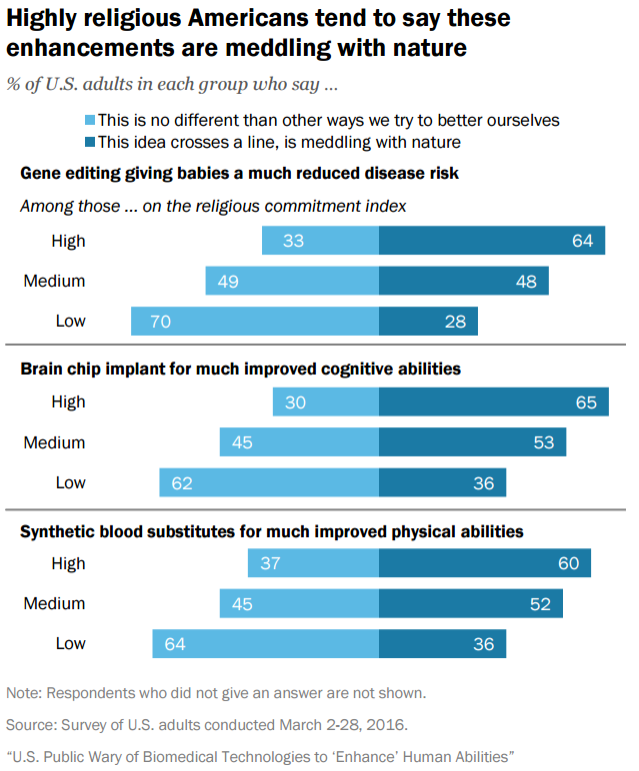‘Designer Babies’ And ‘Enhanced’ Humans? No Thanks, Say Most Americans

Most Americans, it would seem, are not enthusiastic about the prospect of becoming cyborgs. According to a new survey by the Pew Research Center, wariness and distrust are the dominant emotions expressed by American adults when it comes to the potential use of emerging biomedical technologies for human “enhancement.”
The survey — whose findings, incidentally, were released on the birth anniversary of the English writer Aldous Huxley, who populated the dystopian world of his “Brave New World” with genetically modified “designer babies” — examined public attitudes about biomedical technologies that could fundamentally improve people’s health, cognitive abilities or physical capacities.
This particular survey focused on three as-of-yet hypothetical biomedical interventions — gene editing in human babies to reduce risk of serious diseases, implanting brain chips to enhance information processing and cognitive abilities, and transfusing synthetic blood to give people much greater speed, strength and stamina.

Although these technologies are still in their fledgling state, the chances of them becoming real in the near future are quite substantive. For instance, researchers in the U.K. recently announced that they would begin human trials for lab-grown blood substitutes — something they hope may soon be used to help stem blood shortages and to treat congenital diseases like sickle cell anemia. Scientists in the U.K. also have been granted approval to use a breakthrough gene-editing technique known as Crispr/Cas9 on human embryos for research purposes.
Majority of the over 4,700 U.S. adults surveyed said they would be “very” or “somewhat” worried about gene editing (68 percent), brain chips (69 percent) and synthetic blood (63 percent). Over 70 percent of those surveyed said that scientists would begin using these biomedical interventions before they have been fully tested or understood, and 73 percent said that the enhancements would exacerbate the divide between the “haves” and “have-nots,” because they would be dauntingly expensive.

“In addition, many Americans think recipients of enhancements will feel superior to those who have not received them; 63% say this about synthetic blood transfusions in particular. By the same token, but more optimistically, half of Americans or more think recipients of enhancements will feel more confident about themselves,” Pew said in its report.

This would explain why more Americans are on board with these enhancements as long as the change they create does not result in a human with abilities “far above” than any human known to date.
Much of the worry about these techniques seems to stems from two sources — religion and morality. An average of 63 percent highly religious Americans considered these potential enhancements to be “meddling with nature.”

In contrast, an average of 33 percent of those professing low commitment to their religion voiced such fears. Among atheists and agnostics, only 17 percent and 20 percent, respectively, said such interventions crossed a line.
“In general, the most religious are the most wary about potential enhancements. For example, those who score high on a three-item index of religious commitment are more likely than those who are lower in religious commitment to say all three types of enhancement would be meddling with nature and crossing a line that should not be crossed," the report said, adding, "Americans who have lower levels of religious commitment are more inclined to see the potential use of these techniques as just the continuation of a centuries-old quest by humans to try to better themselves.”
© Copyright IBTimes 2024. All rights reserved.






















